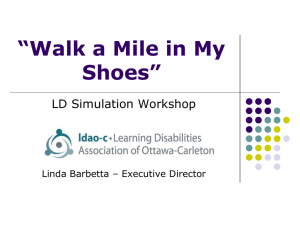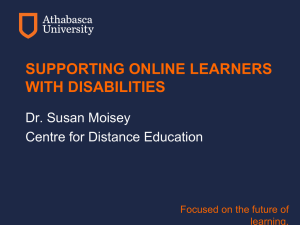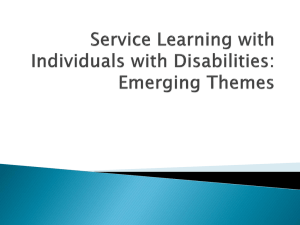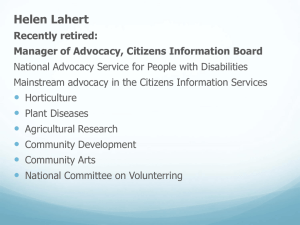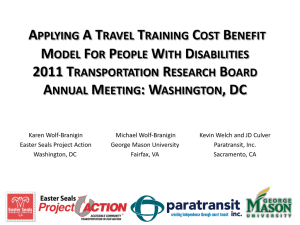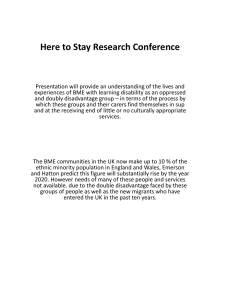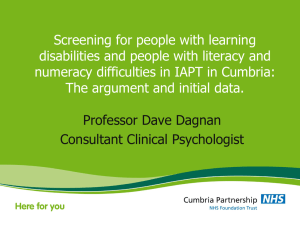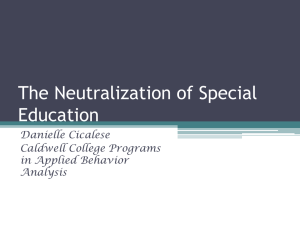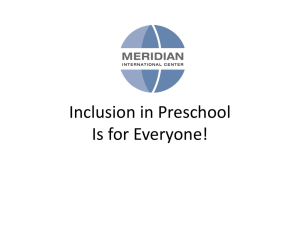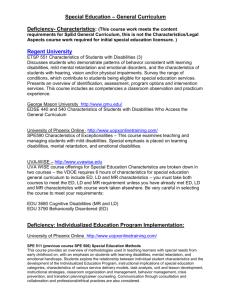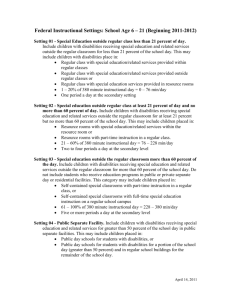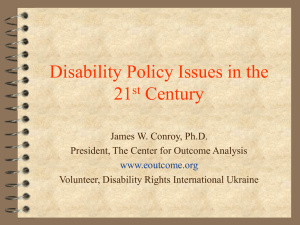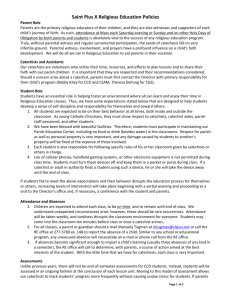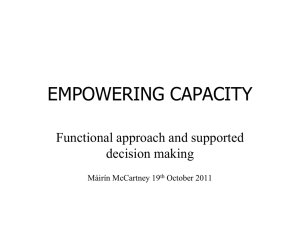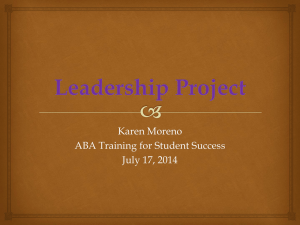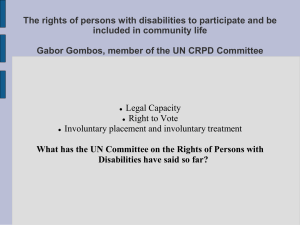Proclaiming God to Persons - ADLA Special Needs Commission
advertisement
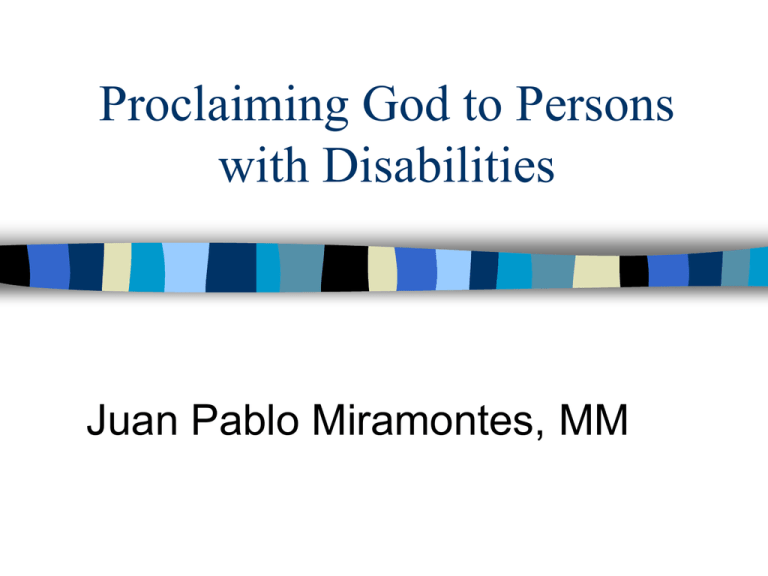
Proclaiming God to Persons with Disabilities Juan Pablo Miramontes, MM Goals Disabilities - What are they? Changes in Society - Views Church Teachings - Bishops How to work/minister with individuals with disabilities Questions Disabilities Non Ambulatory Loss of Limbs Blindness Deafness or Hearing Impairment Mental Retardation Epilepsy Autism Cerebral Palsy Developmental Disabilities v v v v v Permanent Begin from birth to early infancy Approximately 1% of the population is affected Non curable Some are treatable Changes in Society Punishment of God Useless Demonic Children of God Angels PERSONS The Church – Bishops _ 1995 Guidelines for the Celebration of the Sacraments with Persons with Disabilities By reason of their baptism, all Catholics are equal in dignity in the sight of God, and have the same divine calling. Catholics with disabilities have a right to participate in the sacraments as full functioning members of the local ecclesial community (Cf. canon 213). Ministers are not to refuse the sacraments to those who ask for them at appropriate times, who are properly disposed, and who are not prohibited by law from receiving them (Cf. canon 843, sect. 1). Applying the Vision Invite, Welcome, Include All baptized persons have the right to receive an adequate catechesis. Belonging Do you feel welcomed at your parish? Yes, but the invited are are welcomed. I want to be valued, to be a real part of the community – TO BELONG. INVITE - Specifically Personally In the bulletin and during announcements about registration In signs of accessibility throughout the parish campus WELCOME Establish a relationship with parents of children and youth with disabilities Come to know the child or youth as an individual and person Build a relationship between the family, the parish and the religious education of the child or youth INCLUDE Individualize – not one strategy fits all Work in collaboration with the family for the inclusion in all aspects of parish life and that of the life of the diocese Offer a specialized curriculum or formation about disabilities for volunteers, if necessary It is very important that you gather specific and pertinent information during registration ASK… Does your child have a condition, disorder, allergies or physical disability, sensory, cognitive, social or emotional of which we should be informed in order to serve your child and family in the most adequate way? When the response is, “YES”… Maintain a personal contact with the parents or guardians of the student Meet with them to obtain the pertinent information needed Design a plan… an Individualized Education Program Administrative Information Religious Education Objectives of the Student of the the parents/guardians Identify the parish support group (family, DRE, DFF, Consultant, Catechist, Assistant, etc.) Actual Interest / Religious experiences exposed to Medical Information (allergies, convulsions, other relevant information or needs) Areas to consider in the design and adaptation in the lesson plan and other activities 1. Communication Receptive Language Ability– how do people who are deaf or have hearing impairments or those who are non-verbal receive information Expressive Language Ability– how does the student or person communicate with others Written Communication– academic level; large print; Braille; audio tapes/cds 2. Physical Considerations Mobility Equipment Assistance Needed – Fine and gross motor skill actvities – Going to the bathroom or personal hygiene needs – At the time of arrival and dismissal 3. Social Interaction Does the student interact well with others? Additional consideration or how to facilitate social activies What helps the student or the person learn better? 1. Preferred Learning Style Auditory Visual Tangible Verbal 2. Concentration Ability 3. Distractibility Auditory Visual Techniques to Redirect 4. Additional techniques so that the student can respond favorably to learning 5. Other information or recommendations for the Catechist Emotional Wellness Forms in which the catechist or assistant can help before escalation What are some things that cause emotional distress Signs and Tools for intervention descriptions that in case of emotional distress is emergencies near before escalation occurs ¿Questions? Juan Pablo Miramontes, MM (909) 444-7162 Office (626) 806-2124 Cell ChaplainJPM@gmail.com



